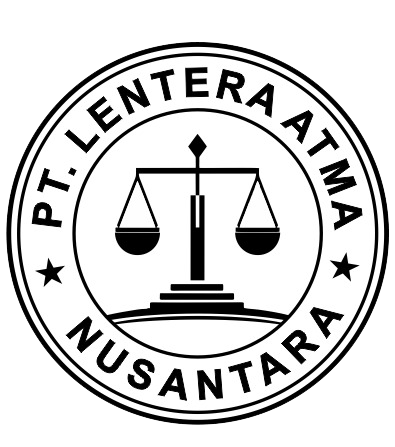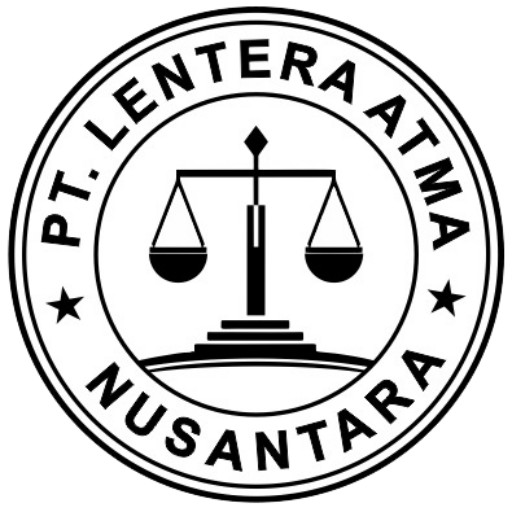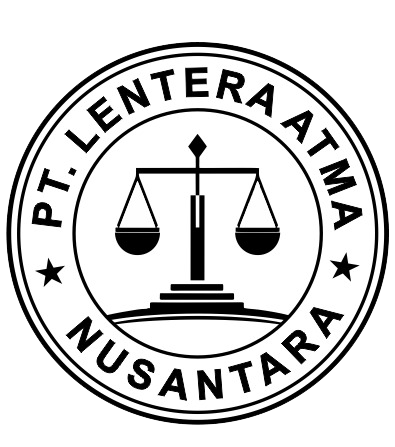Business Consulting and Business Broker, Let’s Check Out!
In a fast-paced and competitive business ecosystem, a deep understanding of Business Consulting and Business Brokers becomes essential. Lentera Atma Nusantara admin will discuss how business consultants and brokers can help organizations achieve growth, efficiency, and success. With expertise that includes operational strategy, financial management, and technology integration, business consultants provide new insights that can unlock a company’s hidden potential. Meanwhile, business brokers play a key role in the negotiation and facilitation of business transactions, connecting buyers and sellers of businesses with the goal of reaching an agreement that benefits both parties.
In this discussion, we’ll dig deeper into how consultants and brokers maximize value for their clients through a variety of customized strategies and solutions. Whether through the development of innovative growth strategies or through the buying and selling of businesses, consultants and brokers ensure that decisions are based on thorough analysis and a comprehensive understanding of the markets.
What is Business Consulting and Business Brokerage?

Business consulting is the practice of providing professional guidance and expert advice to companies seeking to improve operational effectiveness, expand business capabilities, or strengthen financial performance. Business consultants delve into various operational aspects of their clients, including marketing strategy, human resource management, operational processes, and information technology. The main objective of business consulting is to help organizations identify weaknesses and opportunities in their operations, develop and implement results-oriented solutions to address those challenges. Consultants often play an important role in business transformation by offering an objective outside perspective, outlining industry best practices, and guiding companies through the strategic and operational changes needed to improve competitiveness and sustainability.
On the other hand, business brokers play an important role in the buying and selling of businesses, acting as intermediaries between buyers and sellers. Business brokers offer their expertise in assessing the value of a business, marketing the business to potential buyers, and facilitating negotiations to ensure a fair and profitable deal for all parties involved. This process includes conducting due diligence, designing compelling marketing materials, and managing the legal and financial aspects of the transaction. By leveraging an extensive network and deep understanding of the markets, business brokers ensure that ownership transitions go smoothly and efficiently, reducing potential risks and maximizing profits for their clients. Thus, business brokers are invaluable to those looking to sell their business or investors looking to enter the market by purchasing an existing entity.
Business Consulting And Business Broker Functions and Services

Business consulting and business brokerage are two very different but complementary services in helping businesses achieve their goals. Here is an explanation of the functions and services of these two professions:
Business Consulting
The following are some of the functions and services of business consulting:
1. Strategic Planning
- Function: Assist businesses in formulating vision, mission, and long-term goals and strategizing to achieve them.
- Services: SWOT analysis, strategy formulation, business plan preparation, and market development consulting.
2. Operational Improvement
- Function: Improve the efficiency and effectiveness of business processes through analysis and optimization of operations.
- Services: Process analysis, lean management implementation, quality improvement, and supply chain optimization.
3. Financial Advisory
- Function: Provide financial advice to help businesses maintain financial health and make wise investment decisions.
- Services: Cash flow management, financial analysis, tax planning, debt restructuring, and business valuation.
4. Marketing and Sales Enhancement
- Function: Increase the effectiveness of marketing and sales strategies to drive revenue growth.
- Services: Marketing strategy, market analysis, product development, customer relationship management (CRM), and distribution channel optimization.
5. Change Management
- Function: Support the organization in managing major changes, such as restructuring or implementation of new technologies, to minimize resistance and ensure success.
- Services: Change planning, change communication, training and development, and change monitoring and evaluation.
6. Human Resources Consulting
- Function: Improve human resource management to increase productivity and employee retention.
- Services: Organizational development, compensation system design, recruitment and selection, training and development, and performance management.
7. Technology and IT Consulting
- Function: Assist businesses in adopting new technologies to improve efficiency and competitiveness.
- Services: IT system implementation, cybersecurity, system integration, and digital transformation.
Focus on improving business performance through a variety of services, including strategic planning, operational improvement, financial consulting, marketing and sales, change management, human resources, and technology. Business consultants work closely with organizations to identify problems, develop solutions, and implement changes needed to achieve their business goals.
Business Broker
The following are some of the functions and services of business broker:
1. Business Valuation
- Function: Assess the value of the business to determine a fair and realistic selling price.
- Services: Financial analysis, industry comparisons, valuation methods (e.g., asset-based valuation, income-based valuation).
2. Marketing the Business
- Function: Develop and execute marketing strategies to attract potential buyers.
- Services: Creation of marketing materials, advertising on various platforms, presentations to potential buyers, and broker networks.
3. Finding and Qualifying Buyers
- Function: Find and screen potential buyers to ensure their financial fit and capability.
- Services: Prospecting network, initial qualification, financial analysis of prospective buyers, and initial negotiations.
4. Facilitating Negotiations
- Function: Assist the seller and buyer in negotiations to reach an agreement that benefits both parties.
- Services: Price negotiation and terms of sale, conflict mediation, and counter-offering.
5. Managing Due Diligence
- Function: Coordinate the process of thorough inspection by the buyer of the business to be purchased.
- Services: Collection and organization of documents, supervision of due diligence processes, and communication with related parties.
6. Closing the Deal
- Function: Ensure all requirements are met and transactions are completed successfully.
- Services: Drafting and signing of sales agreements, coordination with lawyers and accountants, and completion of legal and financial formalities.
Focus on the process of buying and selling a business by providing services such as business valuation, business marketing, finding and valuing buyers, facilitating negotiations, managing due diligence, and closing deals. The business broker acts as an intermediary between the seller and the buyer to ensure that the transaction process runs smoothly and benefits both parties.
Both of these professions have an important role in supporting business growth, restructuring, and transition, both through improving internal performance and through efficient and effective buying and selling processes.
Business Consulting And Business Broker Process

Business consulting and business brokerage are two different services with specific processes to achieve their goals. Here is an explanation of each process:
Business Consulting Process
The following are some Business Consulting processes:
1. Diagnosis
- Objective: Identify key problems and opportunities for improvement in the business.
- Methods: In-depth interviews, process reviews, financial analysis, benchmarking.
- Steps:
- Data Collection: Consultants collect data through interviews, surveys, observations, and document analysis.
- Situation Analysis: Review data to understand current conditions, including strengths, weaknesses, opportunities, and threats (SWOT analysis).
- Problem Identification: Identify problems that need to be addressed and opportunities that can be exploited.
2. Planning
- Objective: Develop a specific action plan to address identified problems and take advantage of opportunities.
- Methods: Brainstorming sessions, workshops, preparation of plan documents, use of project management tools.
- Steps:
- Strategy Formulation: Develop a strategy based on diagnostic findings.
- Goal Setting: Setting specific, measurable, achievable, relevant, and time-limited short-term and long-term goals (SMART goals).
- Preparation of Action Plan: Develop a detailed roadmap and project plan for implementation.
3. Implementation
- Purpose: Carry out the plan that has been prepared.
- Methods: Project management, training, direct consulting, use of project management software.
- Steps:
- Project Execution: Initiating planned actions, such as process change, training, or technology implementation.
- Project Management: Manage resources, schedules, and budgets to ensure implementation goes smoothly.
- Monitoring and Control: Monitor progress and overcome obstacles that arise.
4. Evaluation and Feedback
- Objectives: Evaluate implementation results and ensure that objectives are achieved.
- Methods: Data analysis, interviews, surveys, final reports.
- Steps:
- Result Data Collection: Collects performance data after implementation.
- Performance Analysis: Compares results with predefined goals.
- Feedback and Adjustments: Provide feedback to clients and make adjustments if needed.
The Business Consulting process involves diagnosis, planning, implementation, and evaluation to help businesses improve performance and achieve strategic goals. Business consultants work with clients to identify problems, develop solutions, and implement necessary changes.
Business Broker Process
The following are some Business Broker processes:
1. Listing the Business
- Objective: Start the process of selling your business by signing a listing agreement.
- Methods: Business valuation, market analysis, document drafting.
- Steps:
- Business Valuation: Assess the value of the business to determine a fair selling price.
- Listing Agreement: Draft and sign a listing agreement with the seller.
- Initial Marketing: Drafting marketing materials, such as brochures, presentations, and advertisements.
2. Finding and Qualifying Buyers
- Objective: Find potential and qualified buyers.
- Methods: Networking, online marketing, interviews and financial analysis of prospective buyers.
- Steps:
- Business Marketing: Marketing a business through networks, advertising, and databases of potential buyers.
- Buyer Qualification: Screening potential buyers based on criteria such as financial capability and business suitability.
- Business Presentation: Presenting the business to potential buyers.
3. Facilitating Negotiations
- Purpose: Help the seller and buyer reach an agreement that benefits both parties.
- Methods: Negotiation, mediation, drafting of agreements.
- Steps:
- Initial Negotiations: Helps draft initial offers and mediation between the parties involved.
- Conflict Mediation: Resolving differences and finding win-win solutions.
- Counter Offers: Manage offers and counteroffers until they reach an agreement.
4. Managing Due Diligence
- Objective: Manage the buyer’s thorough vetting process of the business to be purchased.
- Methods: Document management, communication with related parties, schedule coordination.
- Steps:
- Document Preparation: Collect and compile important documents to be inspected by the buyer.
- Inspection Coordination: Set the inspection schedule and ensure access to the necessary information.
- Process Monitoring: Monitor the due diligence process to ensure smooth running and resolve issues that may arise.
5. Closing the Deal
- Purpose: Complete all requirements and close the deal.
- Methods: Contract drafting, document signing, payment settlement, and handover.
- Steps:
- Drafting a Sales Agreement: Drafting and reviewing the final sales agreement.
- Coordination with Other Professionals: Work closely with lawyers, accountants, and other parties involved to complete transactions.
- Completion of Legal Formalities: Ensure all legal and financial documents are completed and signed.
- Transfer of Ownership: Arranges the transfer of assets and ownership from the seller to the buyer.
The Business Broker process includes listing the business, finding and valuing buyers, facilitating negotiations, managing due diligence, and closing deals. Business brokers act as intermediaries between sellers and buyers, helping to ensure that the buying and selling process runs smoothly and benefits both parties.
Both of these processes require specialized expertise and knowledge, as well as the ability to work with a wide range of stakeholders to achieve desired results.
Conclusion
Business consulting and business brokerage show that these two services have a crucial role to play in helping companies navigate through challenges and opportunities in the complex business world. Business consultants provide deep expertise and insights that help organizations optimize operations, drive innovation, and implement strategies that ensure long-term growth. Meanwhile, business brokers facilitate the critical process of buying and selling businesses, offering negotiation expertise and market experience that helps clients achieve profitable transactions.
By combining knowledge and expertise from both of these domains, companies can make more informed and strategic decisions. In a fast-paced and competitive environment, consulting services and business brokers not only offer solutions to everyday problems but also identify untapped opportunities, helping clients position themselves for future success. Therefore, choosing the right partner in business consulting and brokerage can have a significant impact on the operational success and growth strategy of the company. For information about advocates and legal consultants, you can contact us on WhatsApp or contact us here.





